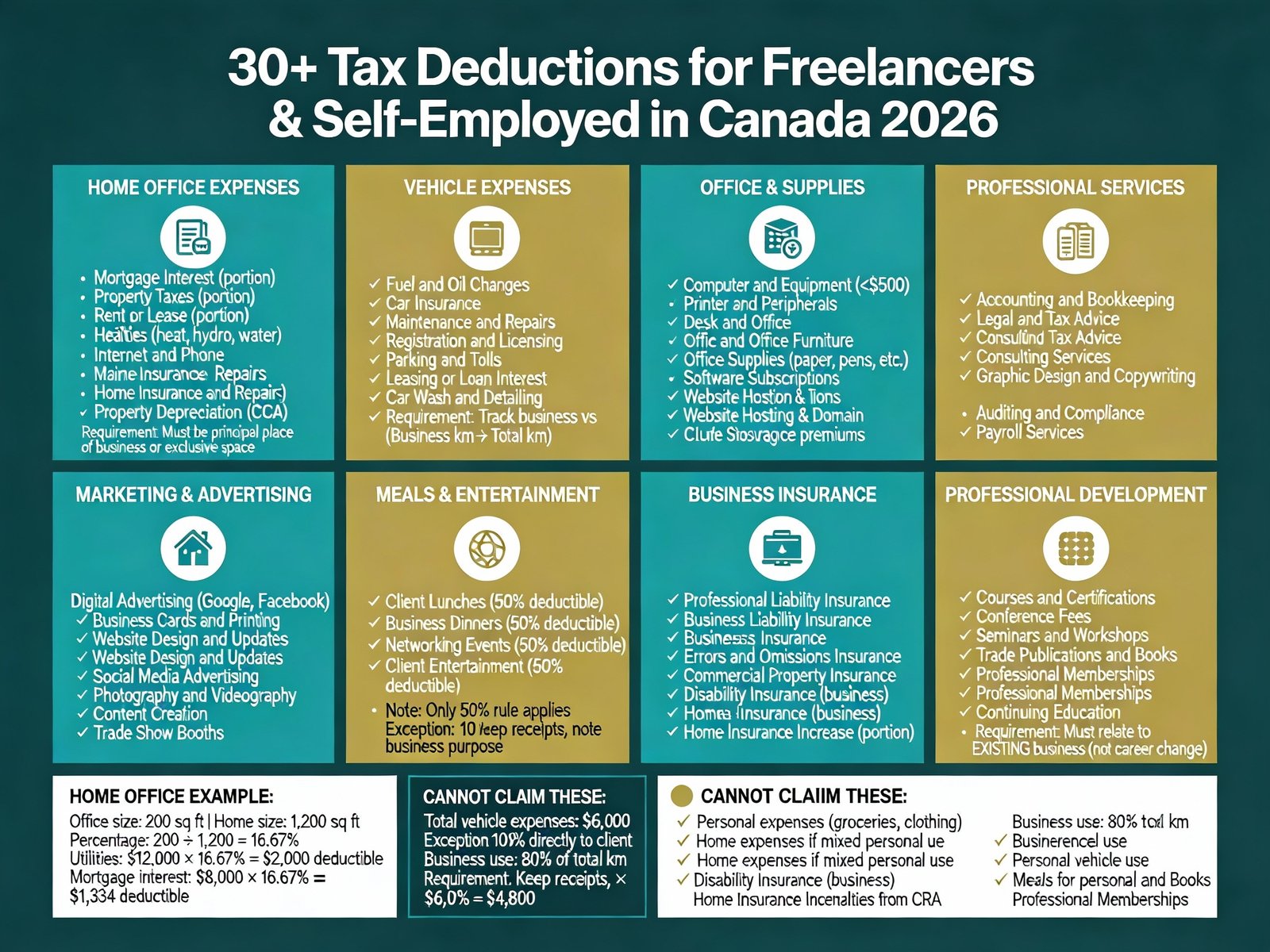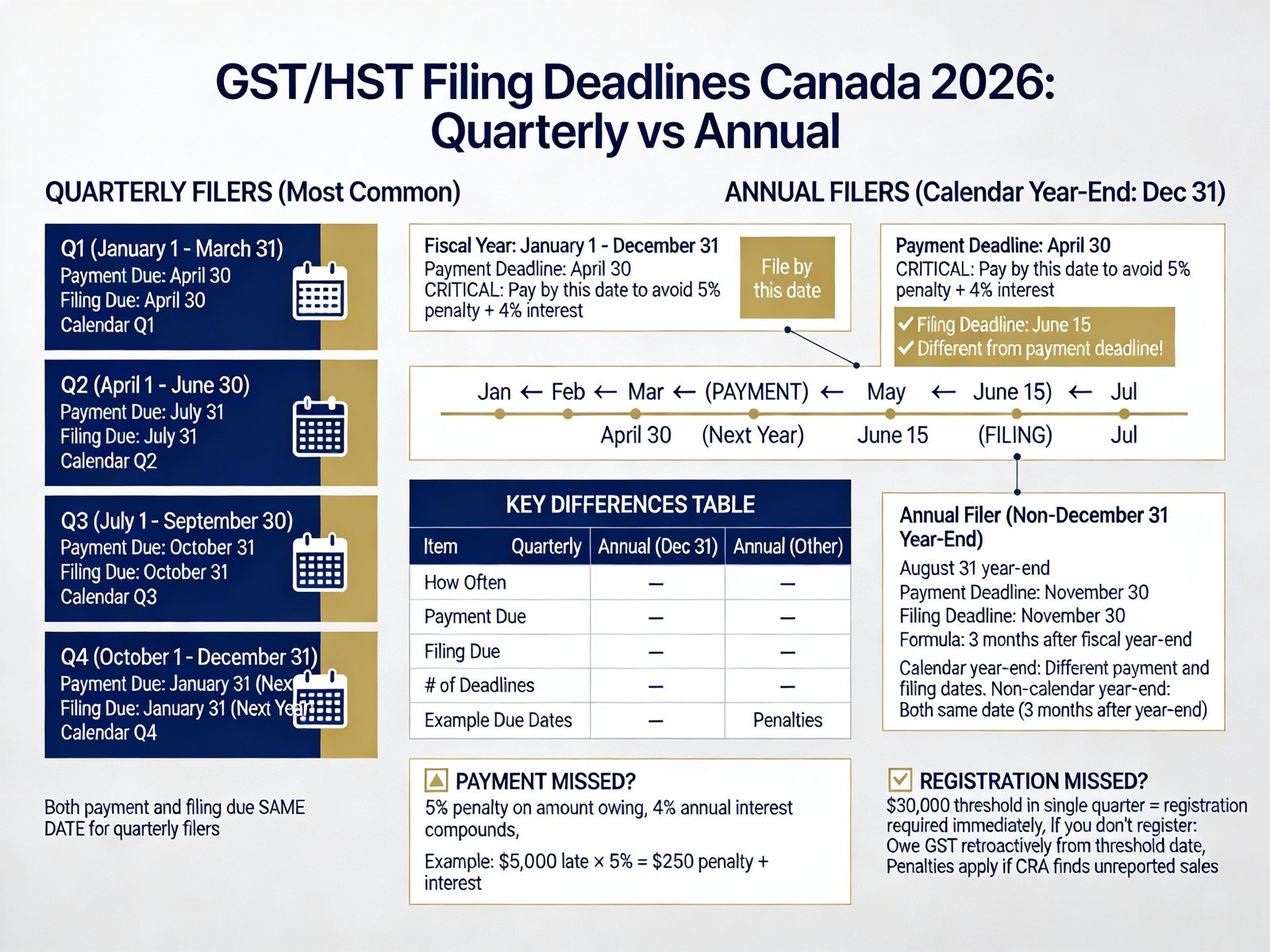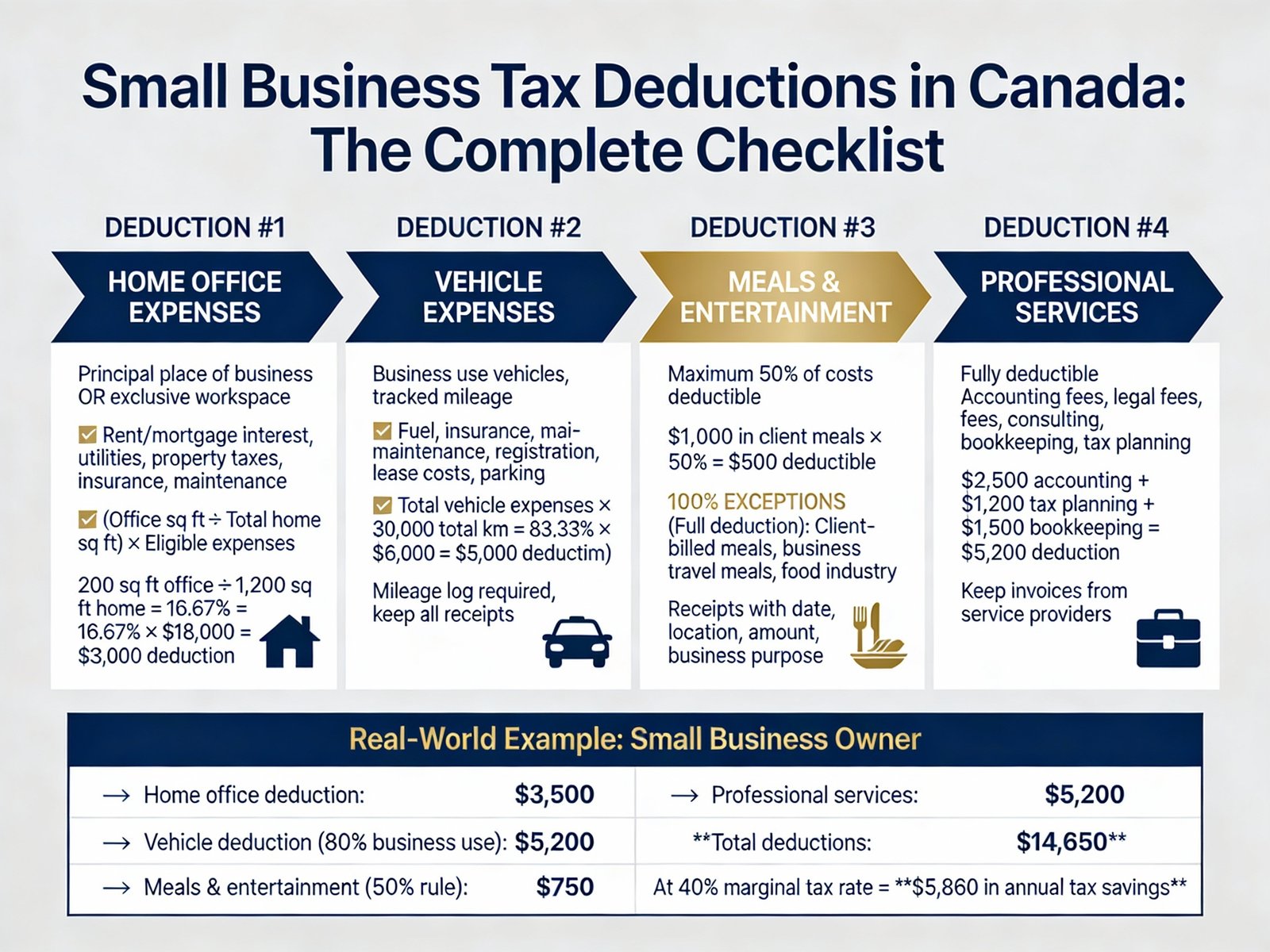For small businesses in Edmonton and across Canada, bookkeeping is not just an administrative task—it’s a key driver of financial success. Proper bookkeeping ensures that your financial records are accurate, up-to-date, and compliant with tax regulations. It provides a solid foundation for effective tax planning, decision-making, and business growth. This guide explores why bookkeeping is essential for tax readiness and offers practical tips for small business owners to maintain accurate financial records.
How Proper Bookkeeping Affects Tax Readiness
Bookkeeping is essential for preparing accurate tax filings, minimizing errors, and maximizing deductions. Here’s how effective bookkeeping impacts your tax readiness:
1. Accurate Tax Reporting
The Canada Revenue Agency (CRA) requires businesses to maintain accurate records to substantiate the income and expenses reported on tax returns. Inaccurate records can lead to misreporting, triggering audits, penalties, or interest charges.
Example: A small bakery in Edmonton must accurately track sales and expenses to report the correct income and claim eligible deductions. If they fail to report all sales or incorrectly classify expenses, they risk being audited by the CRA.
2. Minimizing Errors
Proper bookkeeping reduces the risk of mistakes in tax filings, such as over-reporting income or under-reporting expenses. Errors can result in missed deductions or tax credits, leading to higher tax liabilities.
Example: A contractor may mistakenly report all purchases as expenses when some should be categorized as capital expenditures, leading to a miscalculation of their taxable income.
3. Maximizing Deductions and Credits
By keeping accurate records, small businesses can capture all eligible business expenses, maximizing deductions and lowering taxable income. Receipts and invoices provide necessary proof for expense claims, ensuring they hold up under CRA scrutiny.
Example: A freelance graphic designer may claim office supplies, internet bills, and software subscriptions as business expenses. With proper bookkeeping, they can easily track and categorize these deductions to reduce taxable income.
4. Efficient Tax Preparation
Organized financial records simplify tax preparation. Instead of spending time sorting through piles of receipts, business owners and accountants can focus on strategic tax planning, saving both time and money.
Example: An auto repair shop that regularly updates its bookkeeping will spend far less time preparing tax documents, allowing their accountant to focus on optimizing their tax strategy rather than organizing disorganized records.
5. Cash Flow Management
Effective bookkeeping gives you a clear picture of your cash flow, allowing for better tax planning and avoiding surprises at year-end. Accurate financial records help forecast tax liabilities, enabling businesses to set aside funds for taxes.
Example: A retail store owner in Edmonton can use their bookkeeping records to estimate quarterly installment payments to the CRA, ensuring they have enough cash on hand to meet tax obligations without disrupting daily operations.
6. Audit Preparedness
In the event of a CRA audit, proper bookkeeping ensures that you can quickly provide the required documentation to support your tax filings. This reduces stress and minimizes disruptions to your business.
Example: A catering company with well-organized receipts, invoices, and financial records will be able to easily navigate an audit, providing the CRA with all necessary documentation to verify their tax filings.
Basic Bookkeeping Tips for Small Businesses
Good bookkeeping practices are essential for maintaining accurate financial records. Below are some essential tips for small business owners to get started:
1. Choose the Right Accounting Method
Choosing between cash basis and accrual basis accounting will affect how and when you record income and expenses.
Cash Basis Accounting
- Records income when cash is received and expenses when they are paid.
- Simpler but may not provide a full picture of your financial health.
Accrual Basis Accounting
- Records income when it is earned and expenses when they are incurred, regardless of when cash is exchanged.
- Offers a more accurate representation of your business’s financial position.
Example: A marketing consultant using accrual accounting will record income when an invoice is issued, not when payment is received, ensuring a clearer view of their overall financial health.
2. Utilize Accounting Software
Accounting software helps automate data entry, reduce errors, and generate financial reports that are essential for managing your business.
Benefits:
- Automates repetitive tasks like data entry.
- Reduces the risk of human error.
- Generates financial reports like income statements, balance sheets, and cash flow statements.
Popular Options:
- QuickBooks
- Xero
- Sage 50cloud
- Wave Accounting
Cloud-Based Solutions: Allow access from anywhere and facilitate collaboration with your accountant.
3. Set Up a Chart of Accounts
A Chart of Accounts helps organize your financial data by categorizing income and expenses.
Organization:
- Categorize income and expenses into groups such as sales, cost of goods sold, rent, utilities, and payroll.
Customization: Tailor your chart of accounts to meet your business’s specific needs.
4. Separate Business and Personal Finances
To avoid confusion and ensure clarity, it’s crucial to keep your business and personal finances separate.
How to Separate:
- Open a dedicated business bank account.
- Use a business credit card for business-related purchases.
Example: A landscaping business owner who uses a separate business account can easily track and manage expenses, reducing the risk of missing out on deductible business expenses.
5. Maintain Regular Record-Keeping Practices
Consistency is key to effective bookkeeping. Regularly updating your financial records will ensure accuracy and save you time at tax time.
Consistency: Update your books regularly—daily, weekly, or at least monthly.
Reconciliation: Regularly reconcile bank statements with your accounting records to catch discrepancies early.
6. Keep All Financial Documents
It’s important to keep receipts, invoices, and supporting documents for all your business transactions.
Retention Period: The CRA requires that you keep financial records for at least six years from the end of the tax year to which they relate.
Digital Copies: Use software or apps to scan and store digital copies of receipts and invoices.
7. Track Accounts Receivable and Payable
Managing your cash flow effectively requires careful monitoring of money coming in and going out.
Invoicing: Send invoices promptly and follow up on overdue accounts to maintain healthy cash flow.
Bill Payments: Keep track of upcoming bills to avoid late fees and maintain good relationships with suppliers.
8. Monitor Cash Flow
Regularly reviewing your cash flow statements will help you anticipate potential shortages or surpluses.
Example: A small boutique in Edmonton that tracks cash flow regularly can spot seasonal trends and adjust inventory purchases to maintain a healthy cash reserve.
9. Prepare Financial Statements
Financial statements provide valuable insights into your business’s performance and are essential for tax preparation and decision-making.
Income Statement: Shows your business’s profitability over a specific period.
Balance Sheet: Provides a snapshot of your assets, liabilities, and equity at a given point in time.
Cash Flow Statement: Tracks the movement of cash in and out of your business, helping you understand liquidity and plan for taxes.
10. Understand Tax Obligations
It’s essential to be aware of the various tax obligations your business faces, including sales taxes, payroll taxes, and installment payments.
Sales Taxes: Know when to register for GST/HST and how to collect and remit it.
Payroll Taxes: If you have employees, ensure you understand your responsibilities for source deductions, such as CPP, EI, and income tax.
Installment Payments: If required, make installment payments throughout the year to avoid large year-end tax bills.
11. Consult with a Professional
An experienced accountant or bookkeeper can help ensure that your financial records are accurate, up-to-date, and compliant with CRA regulations.
Example: Consulting a tax professional can help a café owner maximize deductions for utilities, rent, and equipment depreciation while avoiding common tax pitfalls.
12. Automate Where Possible
Automation can significantly reduce the time and effort required for bookkeeping tasks.
Bank Feeds: Link your bank account to your accounting software to automatically import transactions.
Recurring Transactions: Set up automatic entries for regular expenses, such as rent, utilities, or subscription services.
13. Stay Compliant with Regulations
Ensure your business complies with industry-specific tax regulations and accounting standards.
Updates: Keep informed of changes in tax laws, accounting standards, and government regulations that may affect your business.
14. Prepare for Emergencies
In case of unexpected events, having a disaster recovery plan in place can help protect your financial data and ensure business continuity.
Backup Data: Regularly back up your financial data to prevent loss due to technical failures or other disasters.
Conclusion
Effective bookkeeping is essential for the long-term success of any small business. By keeping accurate financial records, you can optimize your tax obligations, make informed business decisions, and ensure you’re prepared for tax time and potential audits. Implementing these basic bookkeeping tips will help small businesses in Edmonton and across Canada build a strong financial foundation, ensuring compliance with tax regulations and positioning themselves for growth.
How Bomcas Canada Accounting Firm Can Help
At Bomcas Canada Accounting Firm, we understand the time constraints and complexities that come with managing a small business. Our team of experienced accountants offers tailored bookkeeping and tax services to help you maintain accurate financial records and ensure tax readiness.
Our Services Include:
- Comprehensive Bookkeeping Services: We manage your day-to-day bookkeeping, allowing you to focus on growing your business.
- Tax Preparation and Planning: We ensure your financial records translate into accurate and timely tax filings, helping you maximize deductions and credits.
- Cloud-Based Solutions: Gain real-time access to your financial data through our cloud-based accounting software, making collaboration seamless.
- Financial Analysis and Advice: Our detailed financial reports and expert guidance offer valuable insights into your business performance.
- Compliance Assurance: We ensure your business stays compliant with CRA regulations, reducing the risk of audits and penalties.
Contact Us Today
Take control of your business finances and ensure tax readiness with professional bookkeeping support.
Phone: 780-667-5250
Fax: 780-851-2520
Email: info@bomcas.ca
Website: https://bomcas.ca
At Bomcas Canada, we are dedicated to empowering small businesses in Edmonton and across Canada with reliable accounting solutions tailored to your unique needs.










 View Our Location
View Our Location





 181 Meadowview Bay, Sherwood Park, AB T8H 1P7, Canada (Online Clients Only)
181 Meadowview Bay, Sherwood Park, AB T8H 1P7, Canada (Online Clients Only)